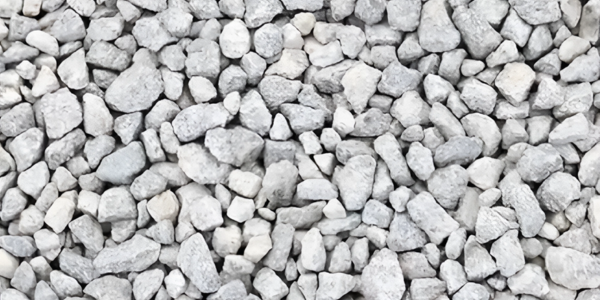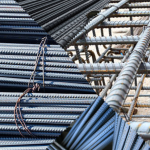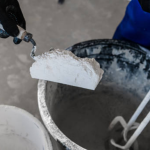
Crushed concrete aggregates (CCA) are a type of recycled concrete that is crushed and screened to create a material that can be used in various construction applications. In this article, we will explore the uses and applications of crushed concrete aggregate in the construction industry.
What is crushed concrete aggregates?
Crushed concrete aggregate (CCA) is a construction material derived from recycled concrete. It is produced by crushing old concrete that has been demolished or removed from structures such as buildings, bridges, and roadways. Instead of disposing of this concrete in landfills, it is processed into smaller pieces to be used as aggregate in new construction projects.
The process of creating crushed concrete aggregate involves breaking down the old concrete into smaller pieces through crushing, typically using heavy machinery such as crushers. The resulting material can vary in size depending on the desired application, ranging from coarse gravel-like pieces to finer particles.

Why Use Crushed Concrete Aggregates?
There are several reasons why crushed concrete aggregates are commonly used in construction projects:
- Cost-Effectiveness: Crushed concrete aggregates provide a low-cost alternative to crushing natural raw materials. By recycling concrete waste, construction projects can save on the cost of purchasing new aggregates, making it a more economical choice.
- Sustainability: The use of crushed concrete aggregates contributes to the sustainability of construction projects. By recycling concrete waste, we reduce the amount of waste sent to landfills and minimize the need for extracting and processing natural raw materials. This helps conserve natural resources and reduces the environmental impact of construction activities.
- Reduced Carbon Footprint: Concrete produced with crushed concrete aggregates has a smaller carbon footprint compared to concrete made with natural aggregates. This is because the production of crushed concrete aggregates requires less energy and emits fewer greenhouse gases compared to mining and processing new aggregates.
- Preservation of Natural Aggregate Resources: The use of crushed concrete aggregates helps reduce the depletion of natural aggregate resources. By recycling concrete waste, we can extend the lifespan of existing aggregate sources and reduce the need for further extraction from quarries or mines.
- Energy Efficiency: The process of crushing concrete waste to produce aggregates requires less energy compared to mining and processing new aggregates. This energy efficiency contributes to a more sustainable construction industry and reduces the overall environmental impact.
Also Read:
- Demolition Techniques
- Concrete Stairs Reinforcement Details
- Causes of Cracks in Concrete
- Types of Columns Used in Construction
- Types of Retaining Wall
- Types of Gabions
Crushed Concrete Aggregate Properties
Crushed concrete aggregate (CCA) exhibits several properties that make it suitable for various construction applications. Here are some key properties of crushed concrete aggregate:
Gradation
The particle size distribution of crushed concrete aggregate can vary depending on the crushing process and the source of the concrete. It is important to ensure that the gradation of the aggregate meets the required specifications for the intended application. Proper gradation can contribute to improved workability and strength of the concrete mix.
Strength and Durability
Crushed concrete aggregate has the potential to provide good strength and durability to concrete structures. The strength of CCA depends on factors such as the quality of the original concrete, the crushing process, and the presence of contaminants. It is essential to conduct appropriate testing to ensure that the CCA meets the required strength and durability requirements.
Absorption and Porosity
Crushed concrete aggregate generally has higher absorption and porosity compared to natural aggregates. This means that CCA has the ability to absorb and release moisture, which can impact the overall performance of the concrete. Proper moisture management and consideration of the absorption characteristics of CCA are crucial for achieving desired concrete properties.
Density
The density of crushed concrete aggregate can vary depending on factors such as the gradation and compaction. It is important to consider the density of CCA when designing and constructing structures to ensure proper load-bearing capacity and stability.
Contaminants
Contaminants present in the original concrete, such as residual mortar or other impurities, can affect the properties of crushed concrete aggregate. It is important to properly assess and address any potential contaminants to ensure the quality and performance of the CCA.
Workability
The workability of concrete mixes containing crushed concrete aggregate can be influenced by factors such as the shape and texture of the aggregate particles. It is important to optimize the mix design and consider the specific characteristics of CCA to achieve the desired workability for construction applications.
Impact of Recycled Aggregate on Concrete Properties
The use of recycled aggregate in concrete can have various impacts on its properties. Let’s explore the effects of recycled aggregate on concrete properties:
The strength of concrete can be reduced when using recycled aggregate. This reduction in strength is primarily due to the presence of residual mortar attached to the recycled aggregate particles. The quality and amount of residual mortar can vary, leading to variations in the strength reduction.
Flexural and Tensile Strength: The flexural and tensile strength of concrete may also be affected by the use of recycled aggregate. Similar to compressive strength, the presence of residual mortar can weaken the bond between the aggregate and the cement paste, resulting in reduced flexural and tensile strength.
Concrete created from recycled material typically shrinks more when dried than concrete built from natural aggregate. The percentage of drying shrinkage increases when it is made from recycled coarse and fine aggregate.
The use of recycled aggregate can result in higher variations in concrete strength compared to using natural aggregate. The variability in the quality and properties of the recycled aggregate, such as the amount of residual mortar, can lead to inconsistent strength results.
The modulus of elasticity, which represents the stiffness of concrete, can be influenced by the use of recycled aggregate. Recycled aggregate with higher water absorption and porosity can lead to a decrease in the modulus of elasticity compared to using natural aggregate.
Recycled aggregate concrete has a lower shear strength than normal concrete. This is because recycled aggregate from field-demolished concrete, for example, may be weaker than natural aggregate. Using recycled coarse aggregates typically leads to a 10% reduction in strength.
Creep refers to the time-dependent deformation of concrete under sustained load. The use of recycled aggregate may result in higher creep due to the higher porosity and moisture absorption capacity of the recycled aggregate.
The permeability of concrete made from recycled aggregates is greater than that of natural aggregates.
Freezing and Thawing Resistance
It has been proven that concrete made with crushed concrete aggregate has the same freezing and thawing resistance as concrete produced with natural aggregate.
Carbonation, Chloride Penetration, and Reinforcement Corrosion
Concrete manufactured with crushed concrete aggregate has a higher carbonation level than concrete made with natural aggregate, especially if the recycled material has already been carbonated. Similarly, the rate of reinforcing corrosion in concrete made with recycled aggregate is higher than in conventional concrete.
Applications of Crushed Concrete Aggregates
Crushed Concrete has a wide variety of uses within the civil construction industry and has been incorporated into major projects. The uses of crushed concrete is divided into two major groups:
Unprocessed Crushed Concrete
Unprocessed crushed concrete refers to crushed concrete that has not undergone any additional processing or refinement. It is typically used in its natural state for various applications in the civil construction industry. Here are some common uses of unprocessed crushed concrete:
- Temporary Roads
- Landfill Construction
- Erosion Control
- Site Stabilization
- Pipe Bedding
Processed Crushed Concrete (Crushed Concrete Aggregate)
Processed crushed concrete, also known as crushed concrete aggregate (CCA), refers to crushed concrete that has undergone additional processing and refinement. It is commonly used in the civil construction industry for a variety of applications. Here are some uses of processed crushed concrete:
- Road Base and Subbase
- Concrete Production
- Drainage Systems
- Landscaping and Beautification
- Structural Fill
- Sustainable Constructions








